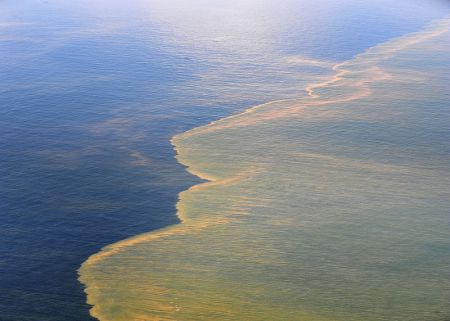KJIPUKTUK (Halifax) - Shell's plans to drill for oil in Nova Scotia's offshore have hit rough water.
Shell's proposed contingency plans allow for a full three weeks to cap any oil blowout.
That would allow Shell sufficient time to ship necessary capping equipment from Norway, rather than have it on standby here in Nova Scotia.
But many believe 21 days is too much time and that oil spill damage should be contained much quicker.
Final approval for Shell's proposal now resides with the Canada -Nova Scotia Offshore Petroleum Board (CNSOPB).
The decision, expected later this year, is closely watched.
That close attention by the general public is a new thing. Usually people don't pay a whole lot of attention to the offshore.
Not any more.
An online petition, now signed by 72,000 individuals, demands that the CNSOPB not approve Shell's application.
“Shell will be allowed to freely spill oil into the ocean for three weeks-- potentially wreaking environmental havoc on Nova Scotia's amazing marine life, major fishing grounds, coastal communities and the Sable Island National Park Reserve,” the petition states.
“And it's all so Shell can save a few bucks by not having to keep safety equipment nearby.”
The Maritime Fishermen's Union, representing over 1300 owner-operator fish harvesters in New Brunswick and Nova Scotia, also condemned the 21-day buffer to deal with oil well blowouts.
Up to now the CNSOPB has mostly operated below the public's radar.
And that inattention has allowed it to do the industry's bidding at every opportunity, environmentalists say.
For instance, the CNSOPB approved the disruptive seismic testing that Shell and BP engaged in even though biologists raised the dangers to marine wildlife that entailed, and even when sensitive areas and endangered species were affected.
And the CNSOPB is widely expected to approve a chemical known as corexit 9500 to do cleanup if an oil spill occurs once Shell starts drilling exploratory wells offshore.
Many scientists believe that corexit kills marine life, makes people sick, and merely masks the effects of spills.
This week two articles by investigative reporter Tim Groves, published for the Halifax Media Co-op and the venerable Guardian respectively, point at a conflict of interest within the CNSOPB.
Federal board appointee Doug Gregory was employed by Shell for over 30 years, Groves writes. After a 7-year stint as a full voting member he was reappointed as an alternate member, meaning he only votes when other members are not able to attend.
Meanwhile, Gregory has full voting rights on Board committees, and has served as Chair of its Health, Safety and Environment Advisory Committee, Groves reports.
Although conflict of interest rules will prevent Gregory from voting on matters directly pertaining to Shell, the article suggests that such relationships between board members and staff and the industry that it is supposed to regulate are entirely too cozy.
“Many of the board and staff, come from and could return to the petroleum industry raising serious questions about their independence,” says Mark Butler, policy director of the Ecology Action Centre, in the Halifax Media Co-op story.
The CNSOPB turned to the Chronicle Herald to set the record straight.
“Offshore Petroleum Board refutes conflict charge,” the Chronicle Herald headline proclaims.
However, the article doesn't deliver what its headline promises.
The supposed refutations offered by the CNSOPB are all accounted for in the original articles. The notion that there is something unsavory about former employees regulating their industry is not addressed.
Meanwhile, BP Canada recently submitted its requests to drill exploratory wells in Nova Scotia's offshore.
“BP’s requirements for oil spill preparedness and response planning incorporate our experience over many years of operation, and specifically from the Deepwater Horizon accident," BP writes in its submission.
The Deepwater Horizon accident occurred in 2010, when a test well drilled by BP in the Gulf of Mexico flowed for 87 days after an explosion that killed 11 workers.
In 2012, BP pleaded guilty to 11 counts of manslaughter, two misdemeanors, and a felony count of lying to Congress.
Click here for more articles on Nova Scotia offshore oil exploration.
Follow Robert Devet on Twitter @DevetRobert



